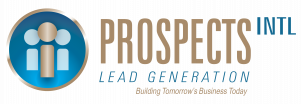
5 Steps to Sales Success – Step 3 Fact Finding
God gave you two ears and one mouth; take this ratio into consideration as you engage your prospects. If you concentrate on asking questions that get the prospect to paint the proper picture of why they want what they want, you’ll be doing yourself and them justice. Be very mindful of the trap that many associates fall into when they take the “fact finding” as an opportunity to impress the prospect with all the product knowledge they have, all the while forgetting to temper their expertise with concern for what the prospect is telling them. This is not a surprising development given the misguided emphasis placed on product vs. sales technique by the main manufacturers in our industry. This, the fact finding, is not the time to unload all of your product knowledge in an effort to impress them by how much of an expert you are, that they just have to buy because you are so smart. Timely and caring statements and on topic questions will deepen their trust; a diatribe WILL NOT.
Let me be clear, you must have product knowledge, especially if you are talking about pianos with technology BUT during the discovery it is best to gather as much information as possible so that when you get to Step 4 (Sincere Recommendations) you will know what to demonstrate, and at that point you can expect a “Wow!” moment when they see the capabilities you want to impress them with.
Simply ask questions that help them describe their needs; then raise their perception of value and the benefits of a fine instrument with facts about the benefits of said fine pianos. Gently guide the conversation toward benefits and value, in lieu of basic price shopping. Continue to reinforce the fact that this is an important decision and you just want to provide all the information they need to introduce them to the right pianos for them to consider. This decision is similar to consideration of a new family member they will be inviting to bring home. One that could potentially be in their family forever! Unless it is truly an entry level consideration, in which instance you should be setting them up for their next piano while they are deciding on the one that they need immediately.
The goals of the fact-finding are crucial to presenting to the prospect the perfect instruments to consider. If you get a true feel for their needs and budget by asking the right questions and presenting the right options, your presentation/demonstration will be on target. If you are not in true tune (pardon the pun) with their dreams and/or wishes, you probably talked too much and didn’t get them to open up enough. You then run the risk of spending your time trying to sell them what you want them to buy instead of what they are willing to buy. Please remember to appeal to their emotions at every opportunity. It is amazing how price becomes very, very secondary after a prospect falls in love with an instrument. Luxury items are most often bought on emotion, then backed up with logic. Concentrate on the feelings first, then use your product knowledge to reinforce the matter when they are in the midst of making a good decision. Unless you are dealing with the occasional analytical type, feelings are the key, not specs. Specs can be the closer AFTER the feelings are engaged and heightened; so as is the entire purpose of the 5 Step Sales Process, be mindful of the order of things: feelings first, then statistics, nuts and bolts. You never want to spend valuable time expounding on something that the listener is not excited about. Let’s be “real world” and invoke the 80/20 rule here… there are individuals we all know, who are analytically inclined. In these instances you must touch on the feelings (as best as possible with this character type) and allow them to drive by talking more about specs and capabilities than normal to land on the right instruments to demo. In marketing and sales, there are trends and methods but no hard and fast rules that shouldn’t be revised as need be if you run into extreme individuals and circumstances. The top producers in any given SIC stick to the proven trail to a sale unless they feel a shift is needed. One HUGE reason top producers are who they are is because they have common sense instincts that allow them to know when to leave the path and improvise. Unfortunately for the everyday sales person, instincts are just that, innate; they can’t be coached.
In summary, the fact finding/discovery process is most effective after credibility and rapport are established. In the infancy of “closing tactics” there used to be a great word picture where each category: Credibility, Rapport, Fact Finding, Recommendations, then Closing had a door at the end of it and your psychological duty was to “close the door” before you walked into the next room to address that new topic. This was done either by reading body language and buying signs or, even more effectively, by learning to ask diplomatic “tie down” questions. The questions were to validate that you have agreement on each topic before moving to the next. I’ll go into more detail when we get to the 5th and final step of the selling process but my point here is that to avoid the “I want to think about it” stance most effectively you cannot leave a previous topic unresolved before you get to the “ASK.”
Focusing on the step at hand means that unless you get a major curve ball, you ask the questions necessary to allow you to present the best possible options, focusing on feelings and benefits. Most piano sales people do this well (ask the right questions) but if they do it out of sequence, they can still do it well but with much less effective results compared to the “selling soldier” who sticks to the chronological strategy. Especially in the fact-finding, the way to achieve your best result is to execute properly asked questions PREVIOUS to the recommendations. To reiterate, and quote myself: “Questions are the Answer.”
“A prudent question is one-half of wisdom. One who never asks either knows everything or nothing. It’s very flattering to ask others about matters they’re little qualified to discuss. Why and how are words so important that they cannot be used too often.”- Forbes
- Be a Member of the Survivors Club - April 22, 2024
- Don’t Be Color Blind - March 14, 2024
- LeadFlow Clients Add Locations in a Shrinking Industry - March 6, 2024
